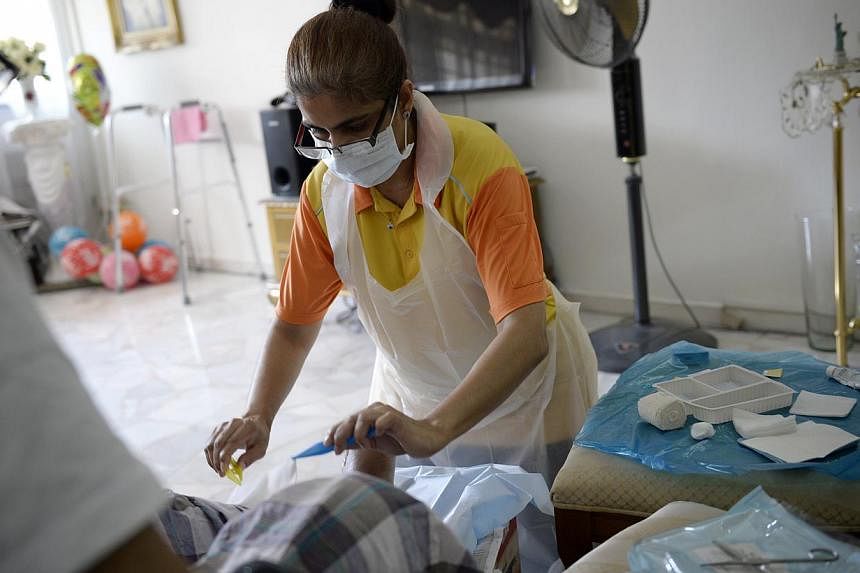As more seniors choose to be cared for at home rather than in a hospital, a growing number of nurses are working out of homes instead of institutions.
The number of those employed in home-based services in Singapore has increased slowly over the years to about 110, said the Health Ministry.
For now, this group makes up only a small proportion of the 36,000 nurses estimated to be working here, but home-care providers believe that the figure is likely to go up because of the boom in home-care services.
NTUC Health has seen client numbers jump 80 per cent over the past year. It is serving 450 home-care clients, and plans to have 100 full-time and part-time nurses by 2020, up from 11 now.
The Home Nursing Foundation also intends to expand its nursing pool. Currently, it has 35 nurses serving 5,917 clients, compared with 4,586 last year.
Touch Community Services, which served 1,600 clients last year, is expecting a 20 per cent increase this year. It has 12 nurses now and needs two more.
In March this year, the Government said it would commit funds to helping home-care providers expand. The target is to allow 10,000 people to be on home medical and nursing care by 2020, up from 5,400 now.
Singapore is encouraging home care for seniors so they can age comfortably in a familiar environment, and to help ease the crunch in hospital beds.
To ensure that home-care standards are upheld, the Health Ministry issued a set of proposed guidelines last month. Training plans for staff will be developed based on these guidelines.
People who need home care are often too frail to leave their homes for treatment. They are visited by medical professionals, such as doctors and nurses, who assess and monitor their chronic conditions. Others on home personal care receive help with daily activities such as bathing.
Home-care providers say nurses making house calls need more support in the form of better training and greater recognition as working in a home environment comes with its own set of challenges.
"Home-care nurses have to be quick and adept at dealing with change and pulling together resources that are not within immediate reach," said Parliamentary Secretary for Health Muhammad Faishal Ibrahim at the first conference dedicated to home-care nursing, hosted by the Tsao Foundation late last month.
The job scope of a home-care nurse includes monitoring the health of those with chronic conditions, performing procedures such as dressing complex wounds, and instructing family members in caregiving techniques.
Ms Fong Yoke Hiong, assistant director of nursing at the Hua Mei Centre for Successful Ageing, said home-care nurses must be able to interact effectively with social workers, doctors and even neighbours to meet the full needs of the patient.
"Unlike nurses in a hospital, where most encounters with patients are new, we get to build a deeper, therapeutic relationship with the clients, and that is the beauty of it," said Ms Fong, who has been in this line for 20 years.


